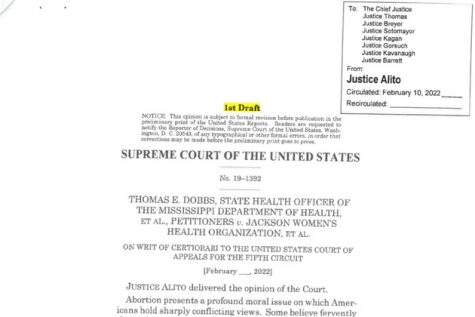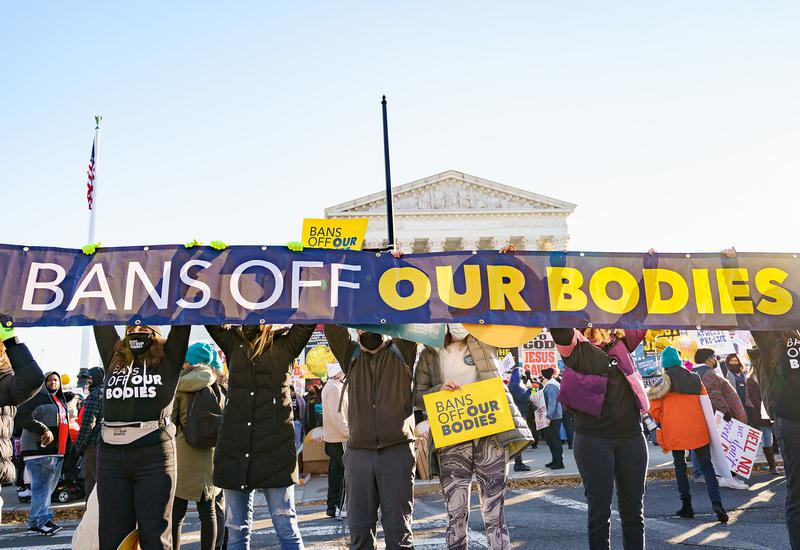Roe v. Wade Overturn: Constitutional or Corrupt?
Does this possible action violate our personal freedoms and right to privacy?
The age-old question of whether the government should be allowed to create legislation affecting the rights of a woman and the autonomy over her own body has been a controversial one since the 1960’s. From the “pro-life movement” to the establishment of Planned Parenthood, nothing has been so monumental to the issue of abortion as the landmark Supreme Court case Roe v. Wade was.
In Roe v. Wade (1973), a woman by the name of Norma McCorvey (who was identified by the pseudonym Jane Roe) sued Henry Wade, a Dallas district attorney, claiming that the state laws surrounding abortion were vague and infringed upon her right to personal privacy. The Supreme Court decided that the Texas abortion ban was unconstitutional. The decision made it illegal for states to have control over abortion during the first trimester (set of three months) of pregnancy, allowed states to limit abortions to protect the mother’s health in the second trimester, and allowed states to ban abortion during the third trimester. Although the case is more complex, this is a highlight of the important details.
This case was widely viewed as a major victory in the womens’ rights and pro-choice movements, yet recent findings that have made their way into the national spotlight may be threatening all the progress that has already been made.
On May 3, 2022, the news outlet Politico leaked “an initial draft majority opinion written by Justice Samuel Alito…” from the Supreme Court that suggests that “striking down” Roe v. Wade’s decision is an imminent possibility.
As could be expected, this leaked Supreme Court draft sparked outrage across the country. Protests began instantaneously, including demonstrations right in front of the Supreme Court building and the Justices’s homes. “#bansofmybody” became a viral hashtag on social media.
So, in the wake of this uproar, we revisit that seemingly impossible question again: how much is the government allowed to regulate the choices we make for our own body and health? At what point does it violate our Fourteenth Amendment right to privacy?
Some say that the government has a right to limit what they deem unsafe for their citizens. Christian Perez, North Hollywood Senior, claims that “abortion should be allowed until a certain point, until the embryo becomes a fully formed human. At that point I don’t think that it is right to take that life away. I think the government could be allowed to ban it at that point.”
A recent poll from the Pew Research Center shows that “61% [of people surveyed] say abortion should be legal in all or most cases, while 37% say it should be illegal in all or most cases.”
As is evident, currently a larger percentage of the country supports the mother being able to make the choice for herself at any point in the pregnancy whether to terminate or not without the government telling her what she can or can not do.

But of course there is still the other side of the argument in which many religious conservatives (but others as well) believe that it is cruel to abort a living being that has no say in the matter. Their side often aligns with the values of Christianity that maintain that life is a gift from God and ending it, even from the very premature point of conception, is a sin.
This raises another question: when exactly does life begin? Some believe it is at the moment of conception, others say that it is when the brain begins to function, and still others consider life to begin when the heart beats. This wide range of different opinions adds yet another layer of complexity to the question of at what point abortion should be banned, or if it should be at all.
Clearly, the argument is more complex than just black-and-white. There is an intricate gray-area with many unknowns and questions that do not fit perfectly into a box of simply “ban all abortion” or “allow all abortion.”
For example, what if abortion is made illegal but the unborn baby is diagnosed with a terminal illness that would cause it to suffer once it is born? What if abortion is made illegal but the mother has neither the support nor the financial resources to care for the child, possibly forcing it to go through a whole childhood of foster care? if abortion is made illegal but having the baby means that the mother may not survive childbirth and possibly the baby as well? if abortion is made illegal but a woman was sexually assaulted, and so forced to have her assaulters’ child?
People have expressed many other considerations to be made that provide all the more reasons for why terminating a pregnancy should be the woman’s choice based on her own personal situation, not the choice of a few powerful individuals (i.e., the Supreme Court) guided by their own possible biases and/or political opinions.
So, while the fetus’ life should be taken into account, so too should the life of the already-living person who may possibly have to suffer through a pregnancy she may either not want or physically cannot undergo.
This is where overturning Roe v. Wade, if the leaked draft holds true, would not only threaten many lives, but also threaten our promised freedom of choice.
Your donation will support the student journalists of North Hollywood High School. Your contribution will allow us to purchase equipment and cover our annual website hosting costs.

